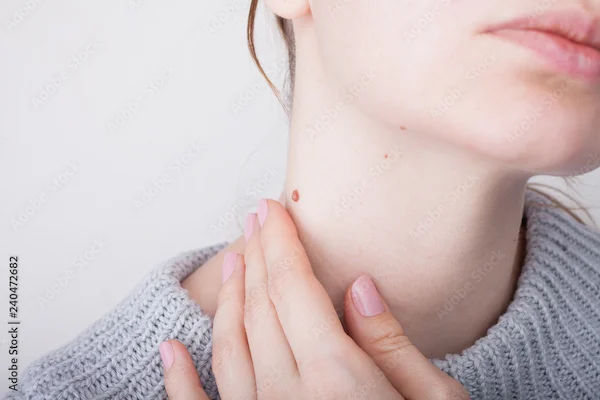Genital Warts: Symptoms, Causes, and Treatments
Learn about genital warts, a common sexually transmitted infection. Discover symptoms, transmission methods, treatment options, and ways to prevent future outbreaks.

Written by Dr. Rohinipriyanka Pondugula
Reviewed by Dr. M L Ezhilarasan MBBS
Last updated on 27th Aug, 2025

Introduction
Genital warts are a common sexually transmitted infection (STI) caused by certain strains of the human papillomavirus (HPV). While they can be uncomfortable or embarrassing, they are treatable, and with the right care, you can manage them effectively.
This article will help you understand what genital warts are, their symptoms and causes, how they affect your health, treatment options and prevention tips and when to see a doctor.
What Are Genital Warts?
Genital warts are small, flesh-colored, or grayish growths that appear on or around the genitals, anus, or thighs. They are caused by HPV (human papillomavirus), which is a very common virus spread through sexual contact.
Not all HPV infections lead to warts; some strains cause warts, while others may increase the risk of cervical or other cancers. However, the types that cause genital warts are usually low-risk and do not lead to cancer.
Consult a Dermatologist for the best advice
Symptoms of Genital Warts
Genital warts can vary in appearance and may not always be visible. Some common signs include:
- Small, raised bumps (single or in clusters)
- Flat or cauliflower-like growths
- Itching, discomfort, or bleeding (especially during sex)
- Warts on the vulva, penis, scrotum, anus, or groin
Sometimes, genital warts may be so small that they go unnoticed. If you suspect you have them, it’s best to get checked by a doctor.
What Causes Genital Warts?
Genital warts are caused by HPV, which spreads through:
- Skin-to-skin sexual contact (vaginal, anal, or oral sex)
- Sharing sex toys
- Direct contact with an infected person’s warts
Note: You can get HPV even if your partner has no visible warts, as the virus can be present without symptoms.
Who Is at Risk?
Individuals more likely to develop genital warts include:
- People with multiple sexual partners
- Those who have unprotected sex
- Individuals with a weakened immune system
- Young adults (most common in ages 17-33)
How Do Genital Warts Affect Your Health?
While genital warts themselves are not dangerous, they can cause:
- Physical discomfort (itching, pain, or bleeding)
- Emotional distress (embarrassment or anxiety)
- Increased risk of spreading HPV to partners
In rare cases, some HPV strains linked to genital warts may contribute to cervical, anal, or throat cancers, but this is uncommon with the wart-causing types.
Treatment Options for Genital Warts
There is no cure for HPV, but treatments can remove warts and reduce symptoms. Common options include:
1. Topical Medications
- Imiquimod (Aldara) – Boosts the immune system to fight warts
- Podophyllin or Podofilox – Destroys wart tissue
- Trichloroacetic acid (TCA) – Burns off warts
2. Medical Procedures
- Cryotherapy (freezing warts with liquid nitrogen)
- Electrocautery (burning warts with an electric current)
- Laser treatment (for large or stubborn warts)
- Surgical removal (for severe cases)
3. Home Care & Prevention
- Avoid scratching or picking warts (can spread infection)
- Practice safe sex (use condoms, though they don’t fully prevent HPV)
- Get vaccinated (HPV vaccine helps prevent high-risk strains)
Can Genital Warts Be Prevented?
Yes! Here’s how:
- Get the HPV vaccine (recommended for boys and girls aged 9-26, and some adults up to age 45)
- Use condoms (reduces but doesn’t eliminate risk)
- Limit sexual partners (reduces exposure to HPV)
- Regular STI screenings (early detection helps)
When Should You See a Doctor?
Consult a doctor if:
- You notice unusual growths in the genital area
- Warts cause pain, bleeding, or discomfort
- You’re unsure whether you have genital warts
- You want to discuss HPV vaccination
Final Thoughts
Genital warts are common and manageable. While they may cause discomfort, the right treatment can help. Practicing safe sex, getting vaccinated, and staying informed are key to prevention.
Consult a Dermatologist for the best advice
Consult a Dermatologist for the best advice

Dr. Surendra V H H
Dermatologist
40 Years • MBBS, DVD, MD
Bengaluru
Apollo Hospitals Bannerghatta Road, Bengaluru
(200+ Patients)
Dr B Kinnera
Dermatologist
8 Years • MBBS, MD DVL , FRGUHS (Dermatosurgery and hair transplantation )
Visakhapatnam
Apollo Hospitals Ramnagar Vizag, Visakhapatnam

Dr. Pranoti Deshpande
Dermatologist
5 Years • MBBS, MD (Dermatology, Venereology and Leprosy)
Hyderabad
Apollo Hospitals D R D O kanchanbagh, Hyderabad
(150+ Patients)
Dr. Asiya Begum S
Dermatologist
10 Years • MBBS, MD (DVL), FRGUHS (Fellowship in Trichology)
Hyderabad
Apollo Hospitals Jubilee Hills, Hyderabad

Dr. Bhavya Swarnkar
Dermatologist
14 Years • MBBS, MD, DNB (Dermatology, Venereology & Leprosy) Former Senior Resident, Department of Dermatology- AIIMS, New Delhi. Associate Consultant - Dermatology.
Bilaspur
Apollo Hospitals Seepat Road, Bilaspur
(225+ Patients)
Consult a Dermatologist for the best advice

Dr. Surendra V H H
Dermatologist
40 Years • MBBS, DVD, MD
Bengaluru
Apollo Hospitals Bannerghatta Road, Bengaluru
(200+ Patients)
Dr B Kinnera
Dermatologist
8 Years • MBBS, MD DVL , FRGUHS (Dermatosurgery and hair transplantation )
Visakhapatnam
Apollo Hospitals Ramnagar Vizag, Visakhapatnam

Dr. Pranoti Deshpande
Dermatologist
5 Years • MBBS, MD (Dermatology, Venereology and Leprosy)
Hyderabad
Apollo Hospitals D R D O kanchanbagh, Hyderabad
(150+ Patients)
Dr. Asiya Begum S
Dermatologist
10 Years • MBBS, MD (DVL), FRGUHS (Fellowship in Trichology)
Hyderabad
Apollo Hospitals Jubilee Hills, Hyderabad

Dr. Bhavya Swarnkar
Dermatologist
14 Years • MBBS, MD, DNB (Dermatology, Venereology & Leprosy) Former Senior Resident, Department of Dermatology- AIIMS, New Delhi. Associate Consultant - Dermatology.
Bilaspur
Apollo Hospitals Seepat Road, Bilaspur
(225+ Patients)
